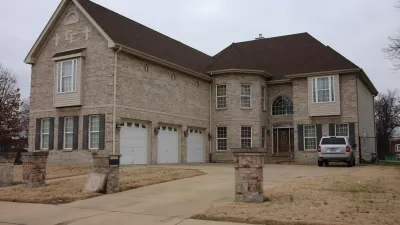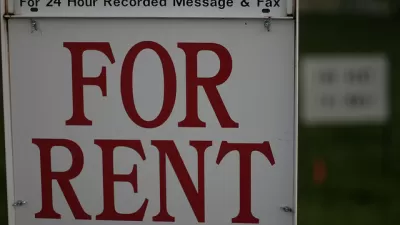Kathleen Madigan takes a look at new research that considers the shift in America's living situations, and what it means for consumer behavior.
With the recent collapse of the housing market on one hand and an ever-tighter rental market on the other, Americans are finding it increasingly difficult to keep a roof over their heads. Even so (or is it accordingly?), the majority of Americans still aspire to own their own home, according to a recent study by the Demand Institute, an arm of the U.S. Conference Board.
Entitled "The Shifting Nature of U.S. Housing Demand," the report suggests that the housing sector is ready to turn around – but that it won't be back to business as usual, even after prices pick back up.
"The first stage of this recovery will be led by rental properties," Madigan explains. "Past homeowners who lost their houses to foreclosure, young adults who are now living at home or who haven't saved a down payment, and new immigrants will drive the demand to lease rather than to buy."
"Homeownership isn't dead, however, argued Louise Keely, chief research officer at the Institute and one of the study's authors. It will simply be delayed, because consumers are still repairing their finances, and reconfigured, because big is no longer better in housing."
What's more, tenants and prospective homeowners are beginning to realize they can't afford to occupy such large spaces, even in the suburbs, where lower prices are offset by the cost of driving long distances. Smaller homes mean new spending habits, as consumers realize they don't have the room for a home gym or a storage room, and turn to businesses to fill the gap. "Almost every consumer-facing industry will feel this effect as consumers adapt," the report argued.
FULL STORY: Housing’s Future: Renting and Downsizing

Alabama: Trump Terminates Settlements for Black Communities Harmed By Raw Sewage
Trump deemed the landmark civil rights agreement “illegal DEI and environmental justice policy.”

Study: Maui’s Plan to Convert Vacation Rentals to Long-Term Housing Could Cause Nearly $1 Billion Economic Loss
The plan would reduce visitor accommodation by 25% resulting in 1,900 jobs lost.

Planetizen Federal Action Tracker
A weekly monitor of how Trump’s orders and actions are impacting planners and planning in America.

Restoring Northern India’s Himalayan ‘Water Temples’
Thousands of centuries-old buildings protect the region’s natural springs and serve as community wells and gathering places.

Milwaukee to Double Bike Share Stations
Bublr Bikes, one of the nation’s most successful, will add 500 new e-bikes to its system.

DC Extends Application Window for Outdoor Dining Permits
District restaurants will have until the end of November to apply, but businesses with permits in rush hour parking lanes must end operations on July 31.
Urban Design for Planners 1: Software Tools
This six-course series explores essential urban design concepts using open source software and equips planners with the tools they need to participate fully in the urban design process.
Planning for Universal Design
Learn the tools for implementing Universal Design in planning regulations.
Caltrans
Smith Gee Studio
Institute for Housing and Urban Development Studies (IHS)
City of Grandview
Harvard GSD Executive Education
Toledo-Lucas County Plan Commissions
Salt Lake City
NYU Wagner Graduate School of Public Service





























